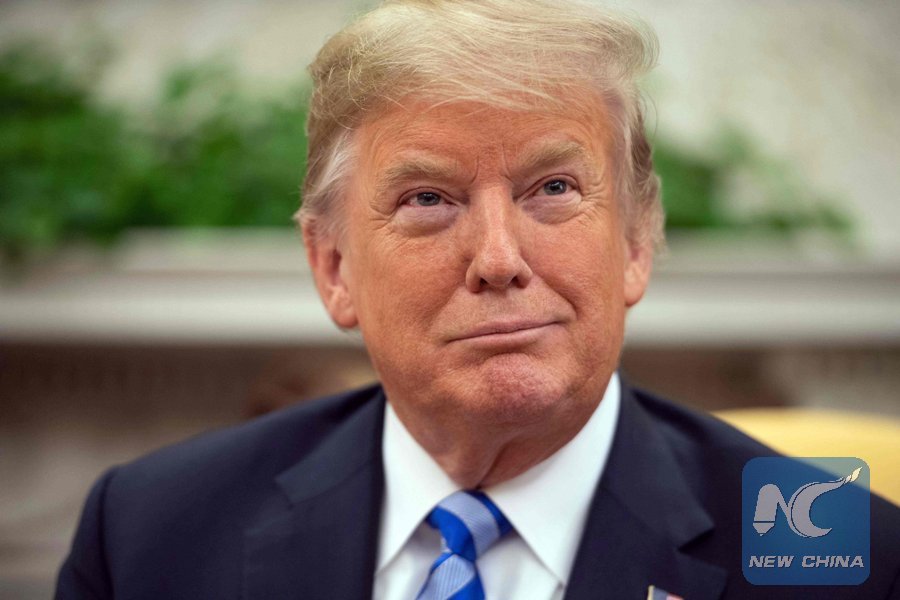 File photo of U.S. President Donald Trump taken on September 05, 2018. (Photo by NICHOLAS KAMM / AFP)
File photo of U.S. President Donald Trump taken on September 05, 2018. (Photo by NICHOLAS KAMM / AFP)
WASHINGTON, Sept. 8 (Xinhua) -- Several U.S. media outlets reported Saturday that the Trump administration has talked secretly with rebellious Venezuelan military officers several times to discuss their plans to stage a coup in the South American country.
According to a report by The New York Times, the clandestine meetings were held last year and this year in other countries to discuss the military officers' plans to overthrow Venezuelan President Nicolas Maduro.
They reportedly asked the attending U.S. diplomat to supply them with encrypted radios, so as to "to communicate securely."
The report also said that "one of the Venezuelan military commanders involved in the secret talks ...is on the American government's own sanctions list."
Washington finally decided not to help the plotters though, and the plans "unraveled after a recent crackdown that led to the arrest of dozens of the plotters," read the report.
It added that "it is unclear how many of these details the coup planners shared with the Americans. But there is no indication that Mr. Maduro knew the mutinous officers were talking to the Americans at all."
The Washington Post also reported that the meetings happened between the two sides.
Quoting U.S. officials, the report said the meetings were "small and closely held."
The U.S. side "had very little confidence in the ability of these people to do anything, no idea at all about who they represented, and to what extent they had not exposed themselves already," the report read.
In response, National Security Council spokesman Garrett Marquis said in a statement that "the United States government hears daily the concerns of Venezuelans from all walks of life."
"U.S. policy preference for a peaceful, orderly return to democracy in Venezuela remains unchanged," he added.
U.S. President Donald Trump said in August of last year that he would not rule out a "military option" in Venezuela "if necessary," despite his aides' opposition.
The U.S. side has also announced several rounds of sanctions against Venezuelan government officials ever since.
For its part, Venezuela has slammed the "warmongering" declarations of Trump as "threats to peace" and a "violation" of UN and international laws.
Maduro has also instructed the military to prepare to "shoulder arms," in case of a U.S. invasion.
Latin American countries like Peru, Colombia and Mexico have strongly condemned and rejected the U.S. threat of military intervention against the crisis-stricken Venezuela, and called for dialogues among related parties.
The U.S. ambition to help stage a coup in Venezuela is also risky for Washington, U.S. media said.
"Establishing a clandestine channel with coup plotters in Venezuela was a big gamble for Washington, given its long history of covert intervention across Latin America," The New York Times noted. "Many in the region still deeply resent the United States for backing previous rebellions, coups and plots in countries like Cuba, Nicaragua, Brazil and Chile, and for turning a blind eye to the abuses military regimes committed during the Cold War."

